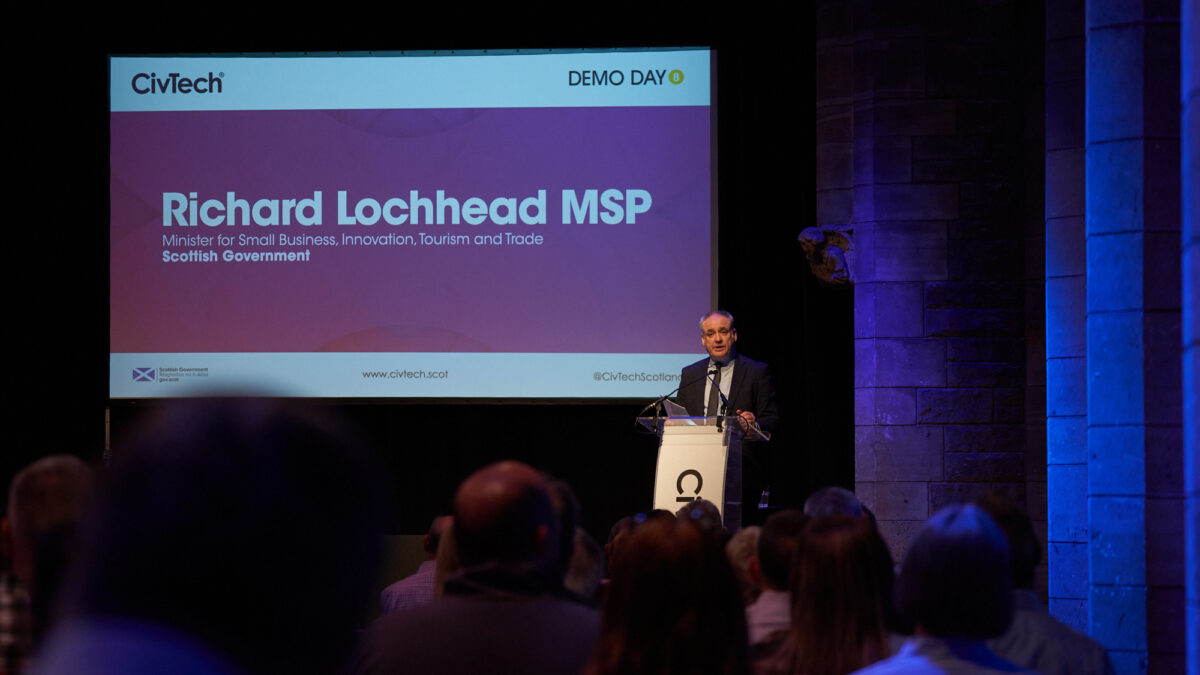Artificial intelligence is being used to spearhead a range of cutting-edge solutions in Scotland’s public sector – from reducing cancer risk for firefighters to monitoring puffin colonies.
Fourteen companies on the latest round of the Scottish Government’s ‘CivTech’ programme are in line to be awarded up to £9 million to deploy the tech – to tackle challenges faced by the public sector and charities.
CivTech 10 is the first round of the programme to focus on AI as the technology becomes increasingly the focus of innovation across multiple sectors, including government.
Products being developed include:
- software to help identify toxic contaminants to address the risk of cancer for firefighters;
- an AI system which can help teachers with administrative tasks;
- using drones and an automated mapping system to monitor puffin populations in a less invasive way;
- an AI support system to enable entrepreneurs to grow their businesses.
Business minister Richard Lochhead said: “Scotland is well-placed to harness the advantages of artificial intelligence with its rich history of innovation and high concentration of world-leading universities and colleges.
“The rapidly growing AI sector offers opportunities for Scotland, from helping to detect health issues such as lung cancer earlier, to enabling businesses to work more efficiently.
“Through CivTech, we are revolutionising how public sector organisations work by collaborating with businesses to develop products which improve lives.”
Previous rounds of CivTech have seen £20 million invested into 90 companies and entrepreneurs since 2016. These include software company Volunteero which developed a mobile app to help charities manage administrative tasks.
Rebekah MacLeod, Lead Project Liaison Officer at White Ribbon Scotland, a charity tackling violence against women which uses Volunteero’s app, said: “Working with Volunteero through the CivTech programme has completely changed how we work as a charity.
“The app means we spend less time worrying about paperwork and more time working with men and boys to directly address violence against women and girls. This includes encouraging more men and boys to speak out about violence against women and girls.”
CivTech companies have created more than 400 jobs and attracted more than £126 million of private sector investment. Nearly 80% of products developed in past rounds of CivTech are still in use.
AI projects in the latest CivTech round:
- Technology developed by Rowden to help firefighters improve their situational awareness in emergency situations.
- A system to detect and monitor firefighters’ exposure to toxins created by FireHazResearch.
- Drones and an automated mapping system from EOLAS and The University of Edinburgh to monitor puffin colonies in a less invasive way.
- Sensors developed by Arctech Innovation to monitor breeding success, seasonal changes and harmful disease in puffins.
- Technology for public sector organisations to use data securely, developed by Verifoxx.
- A platform for citizens and policy makers to understand how AI and other emerging technologies could be used in the public sector, developed by CrownShy.
- A programme created by Talent Engine to provide detailed labour market insights to target skills and development training in Glasgow.
- An AI tool from Rethink Carbon to document woodland and peatland projects.
- A new approach to monitoring carbon balances from woodland and peatland projects from the UK Centre for Ecology and Hydrology.
- Sylvera are developing advanced remote-sensing capabilities to enhance monitoring of carbon projects.
- An AI programme to forecast pharmaceutical demand by postcode area to help reduce waste, developed by PharmovoAI.
- A planning tool created by Looper to help NHS Scotland reduce waste and emissions.
- An AI system to support teachers with administrative tasks, developed by SupportEd.
- A software from BobbAI to help entrepreneurs to access business growth resources and support services.




